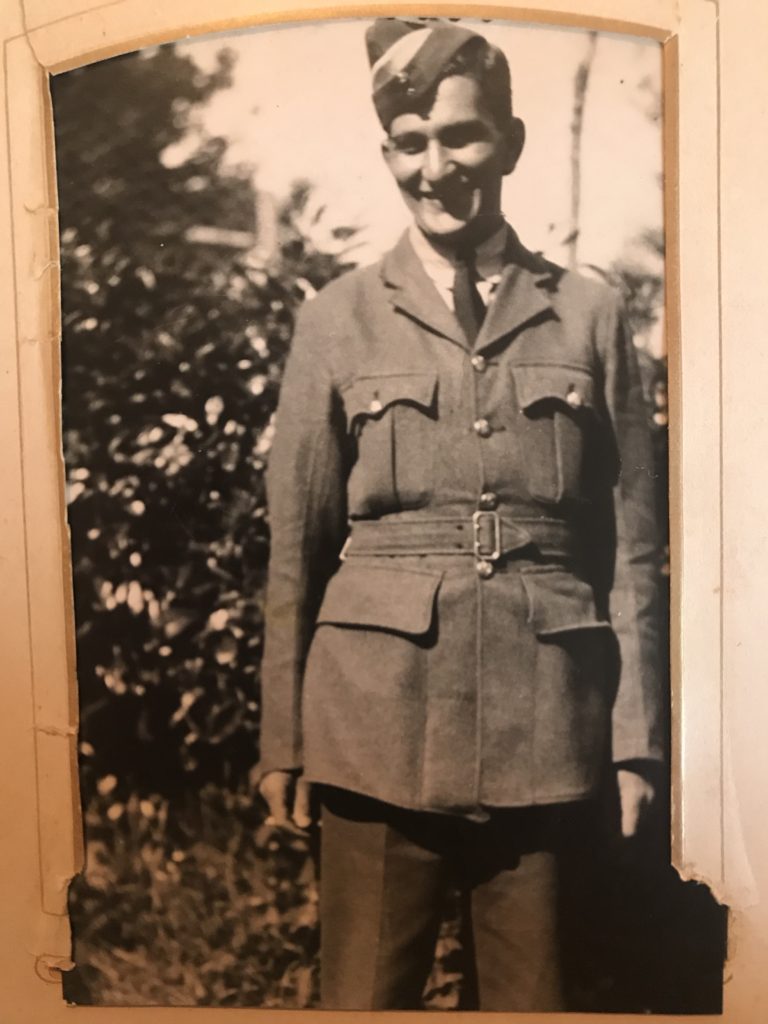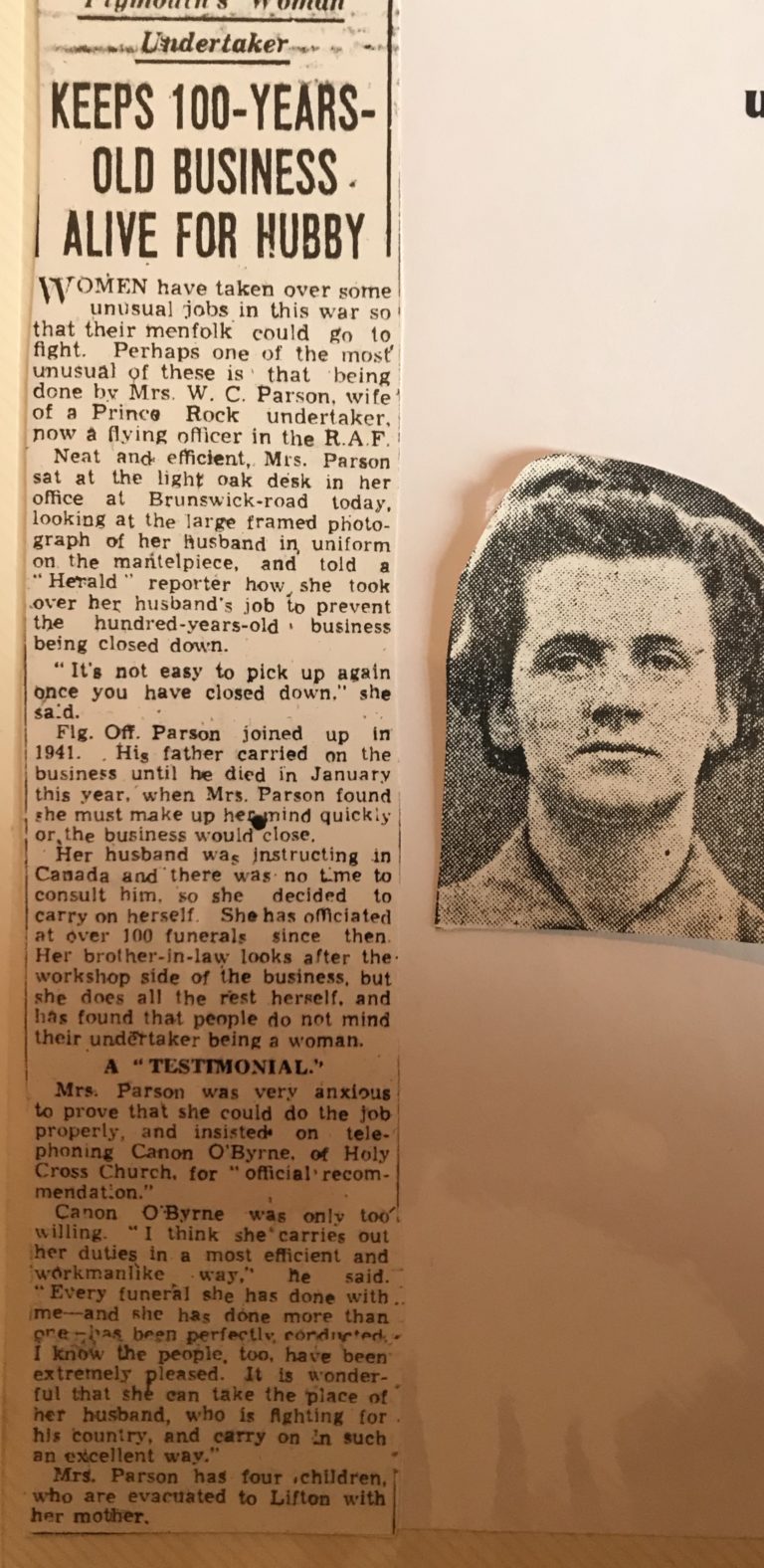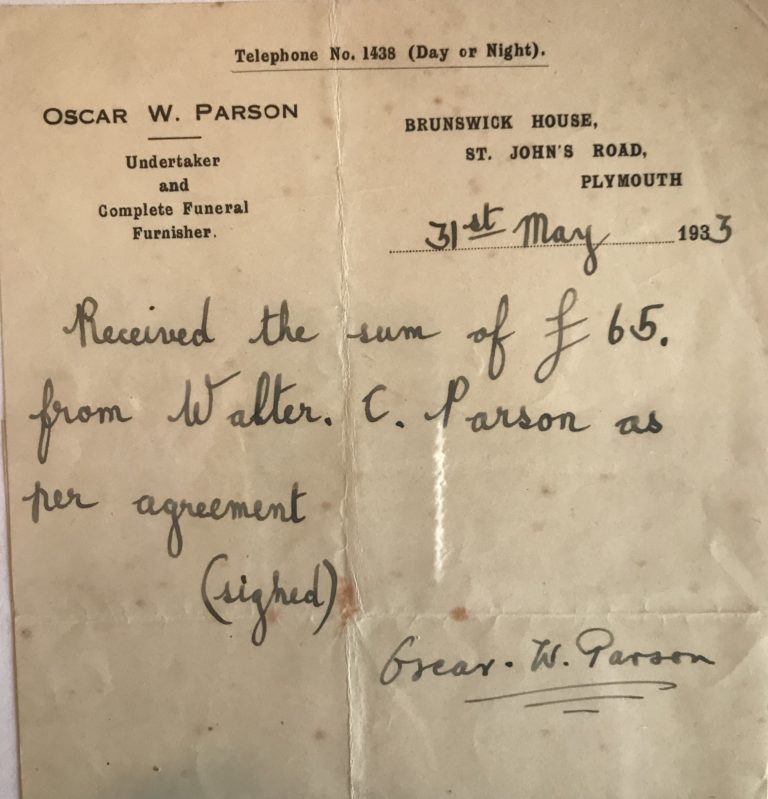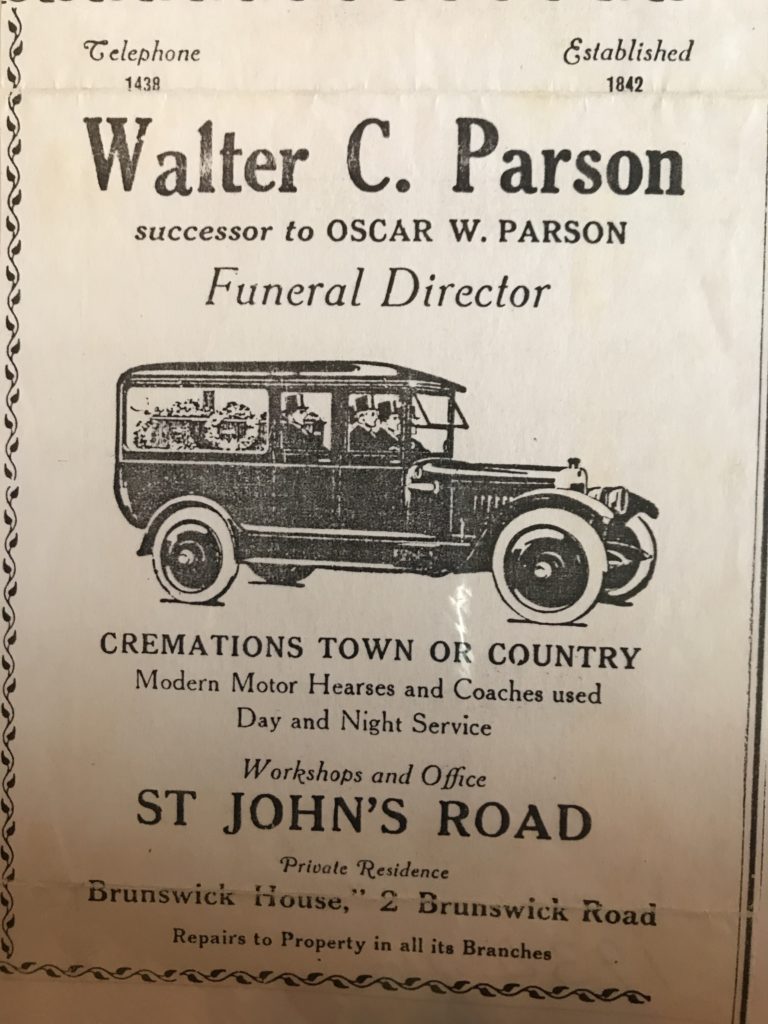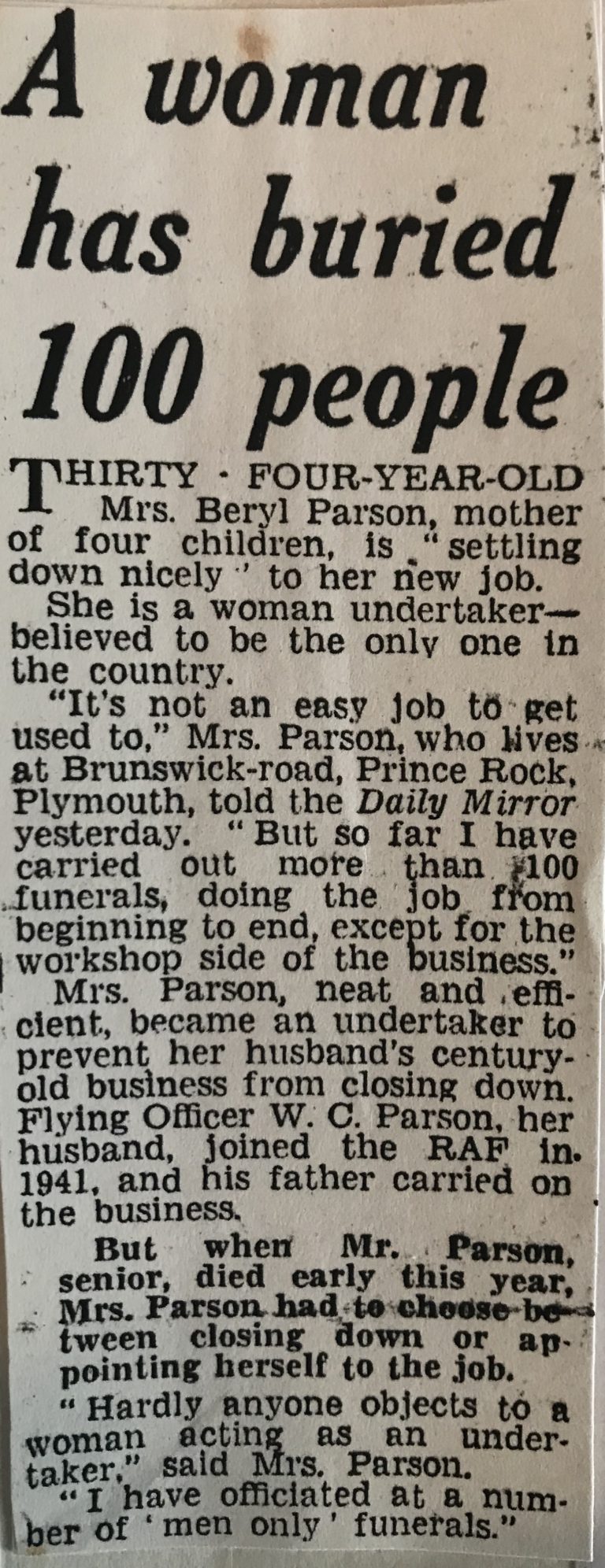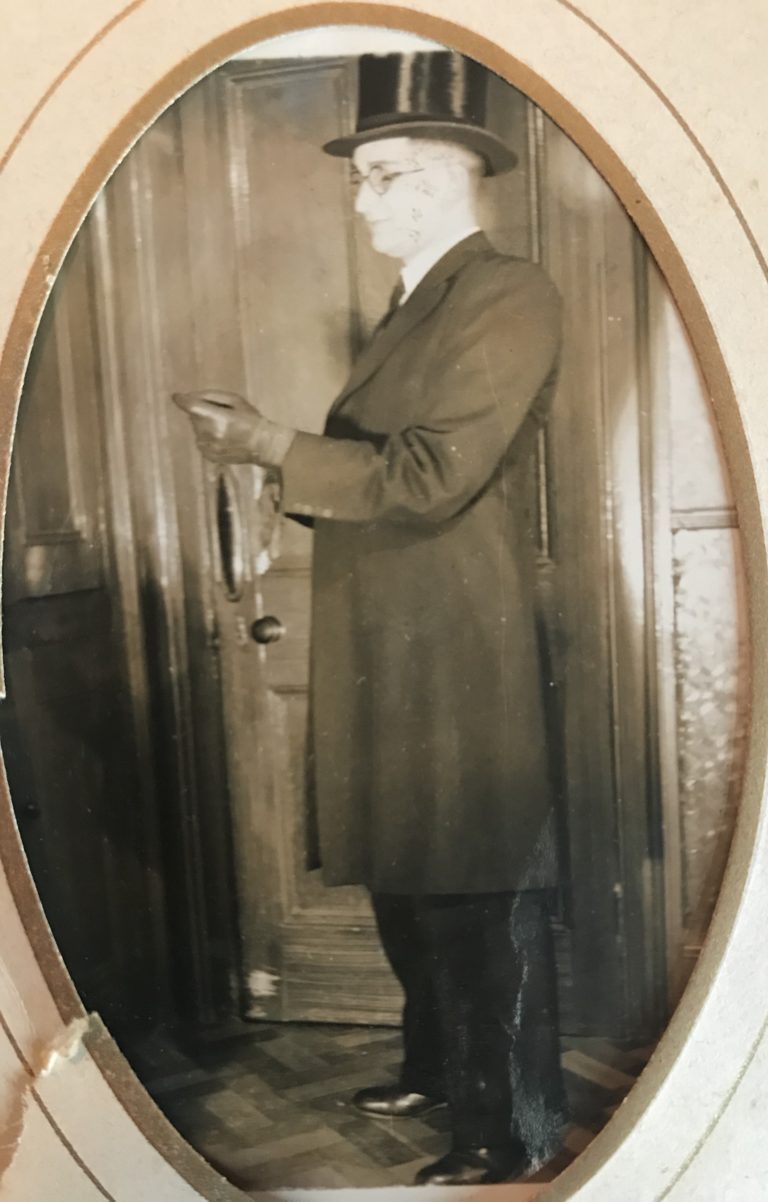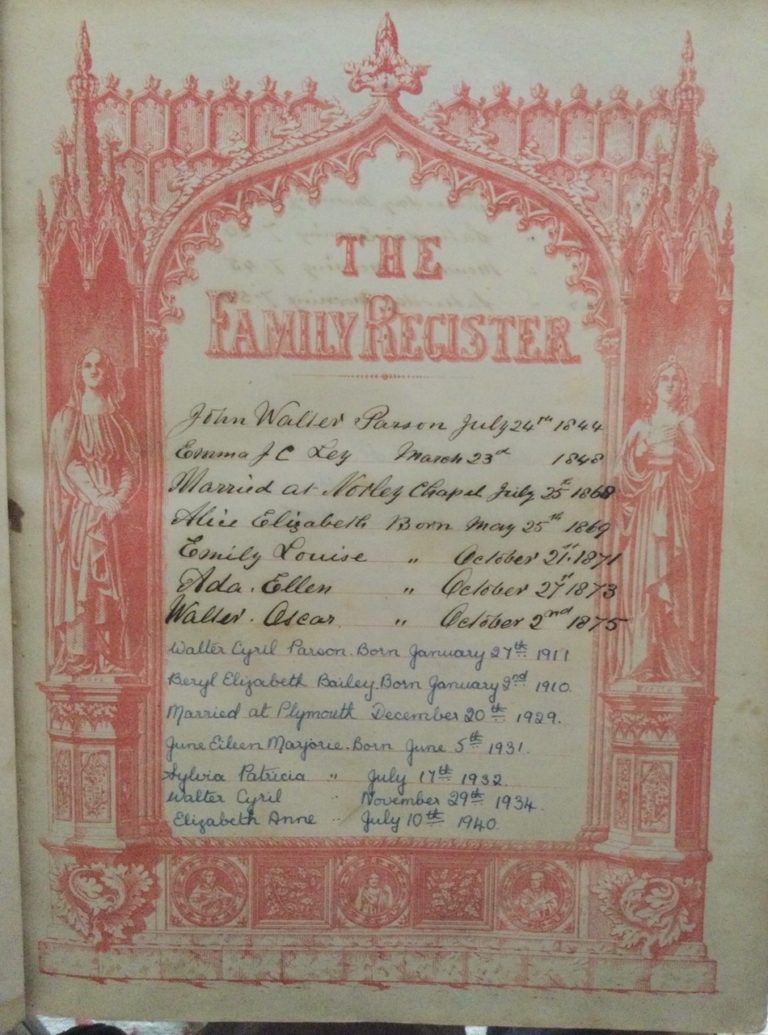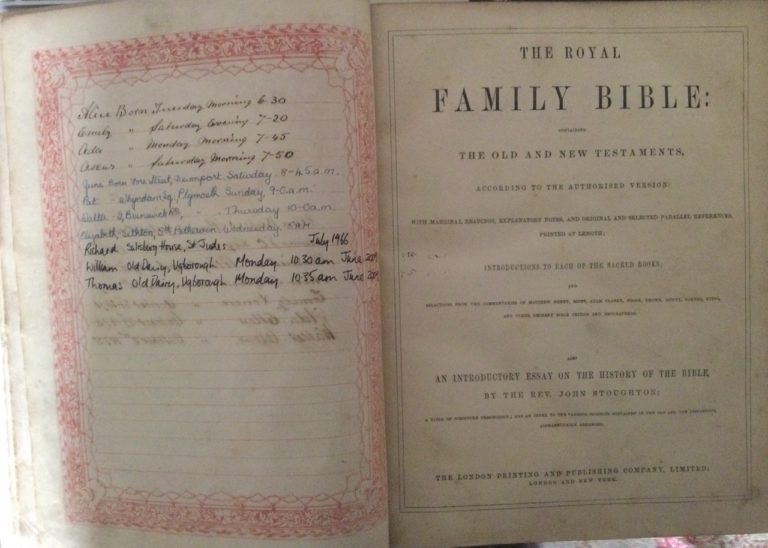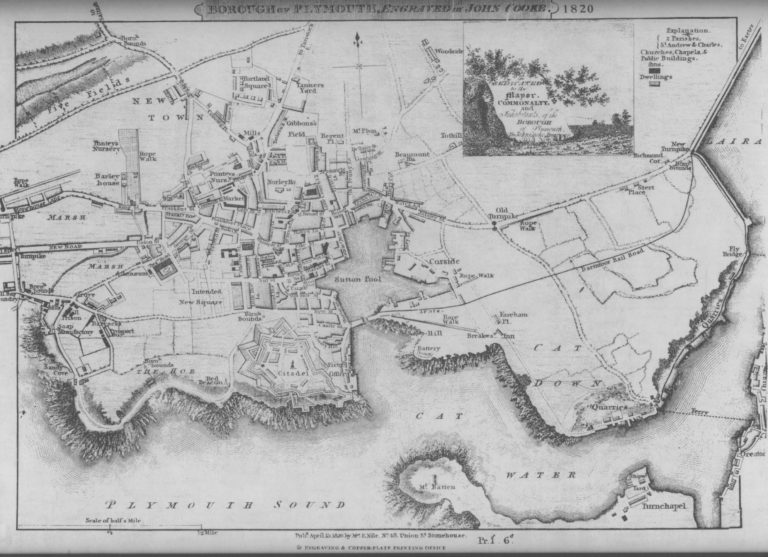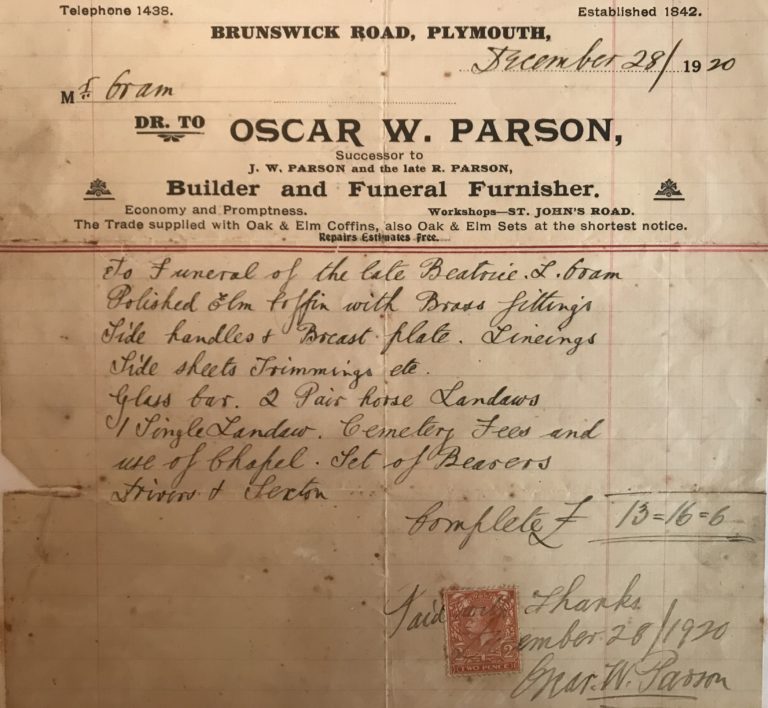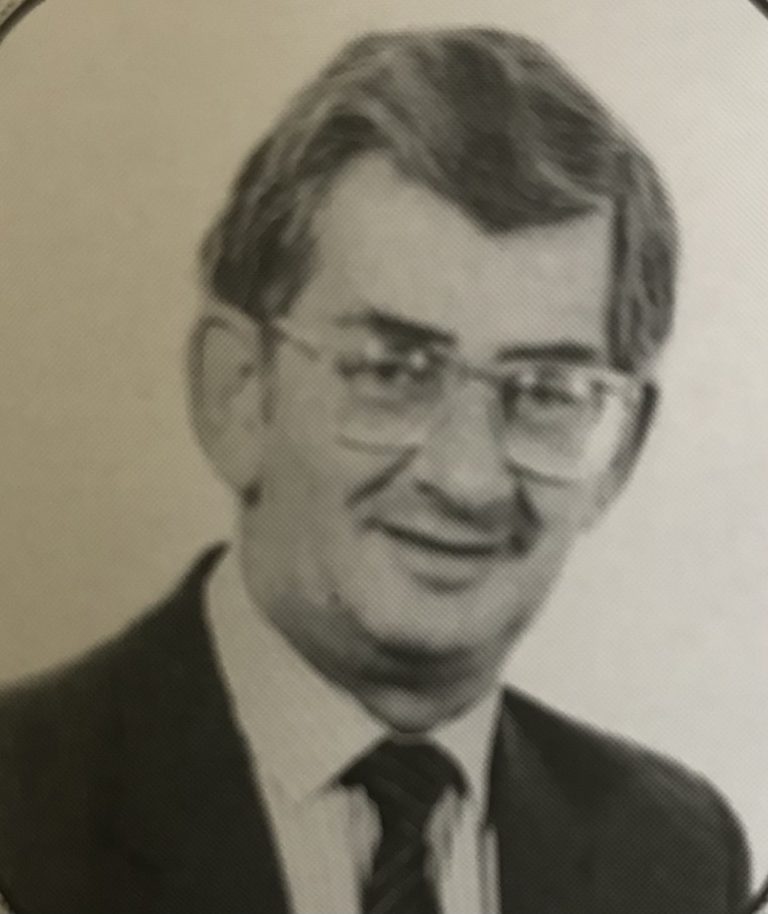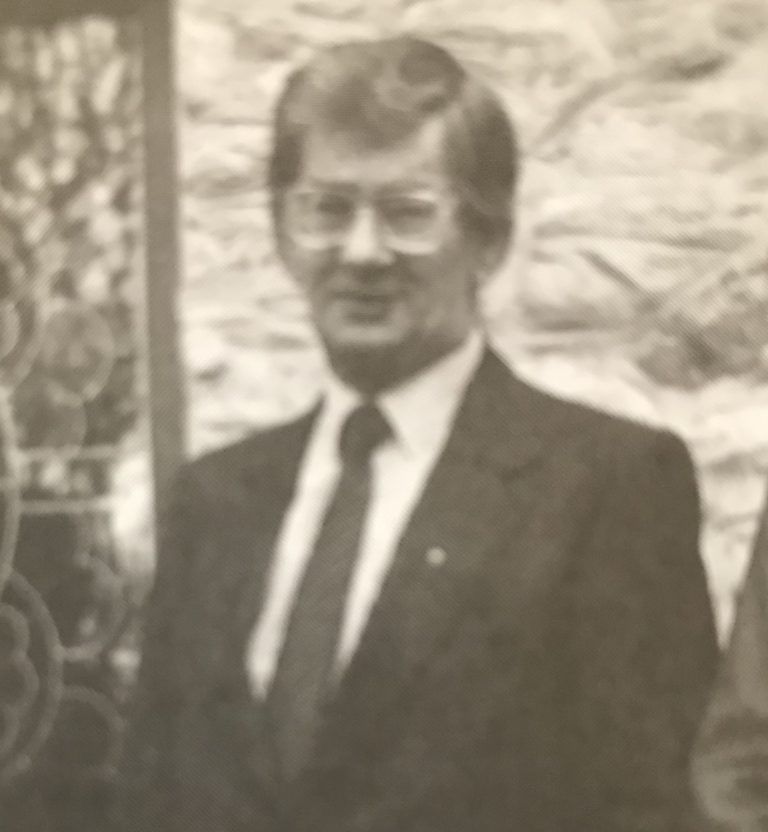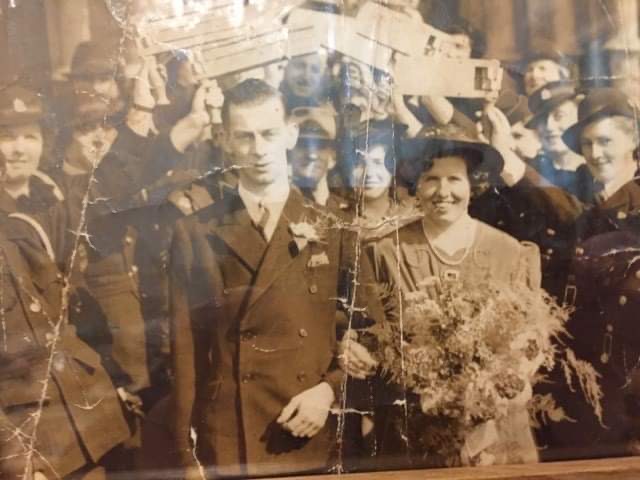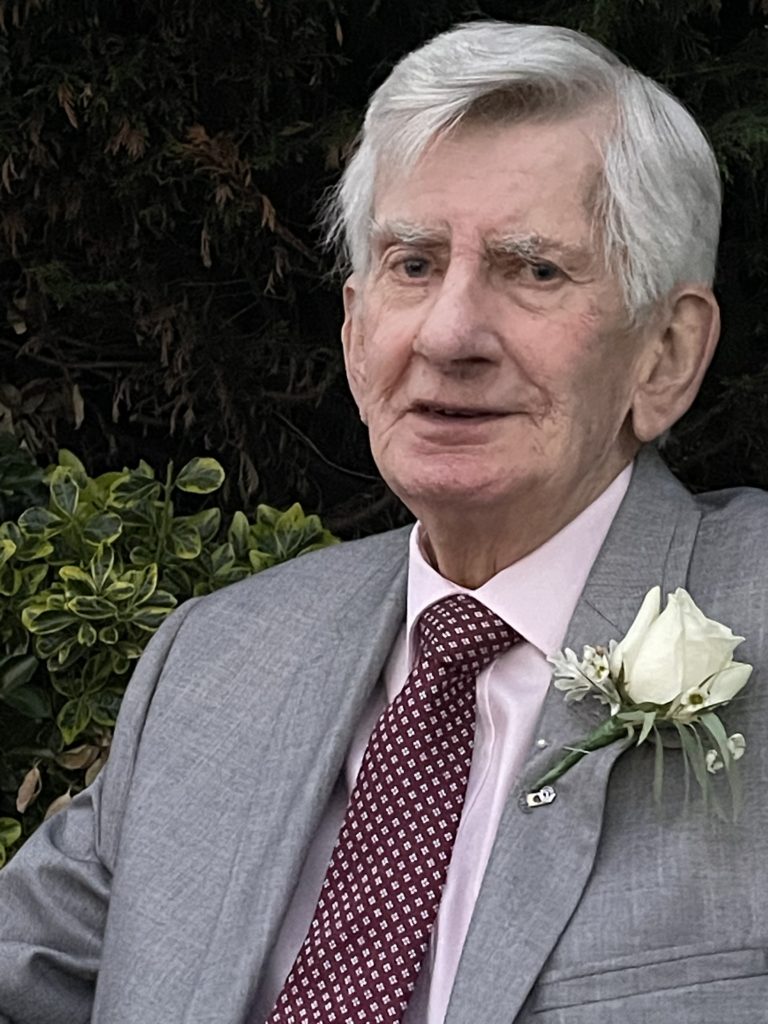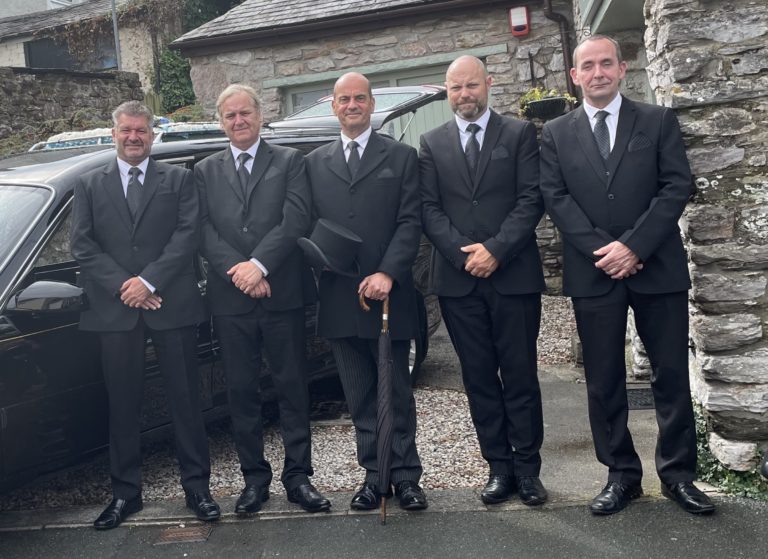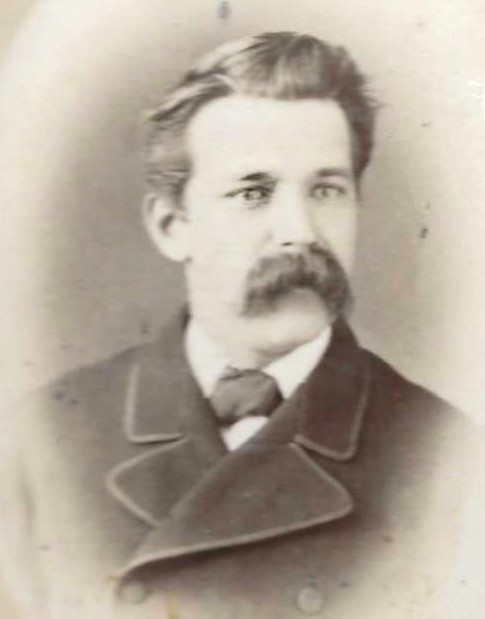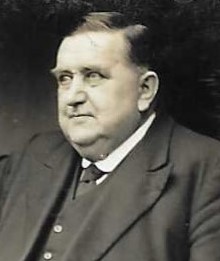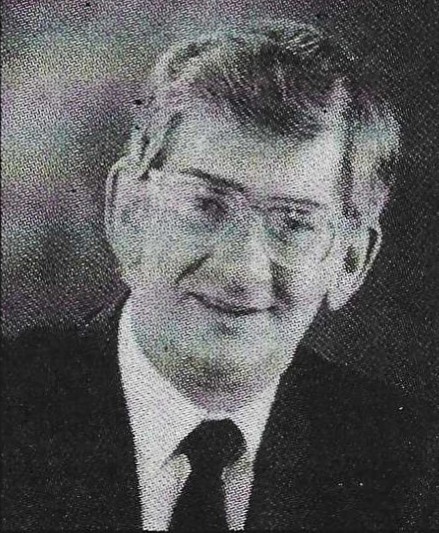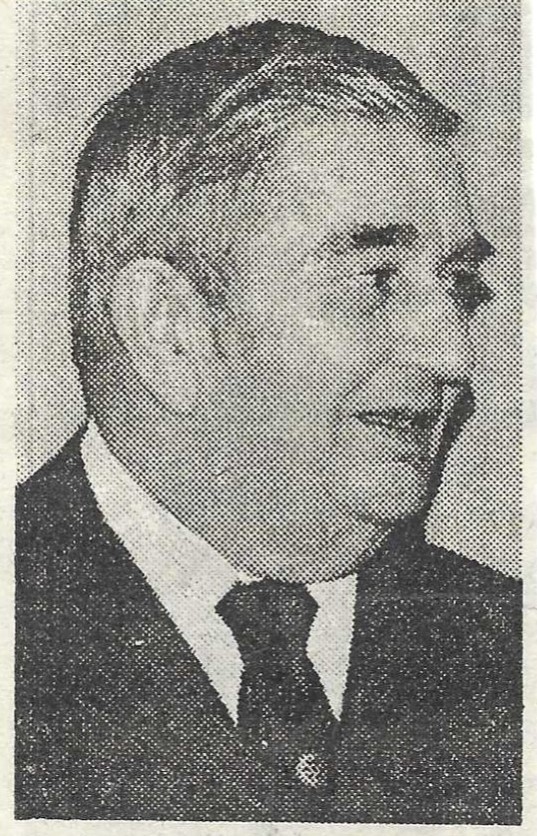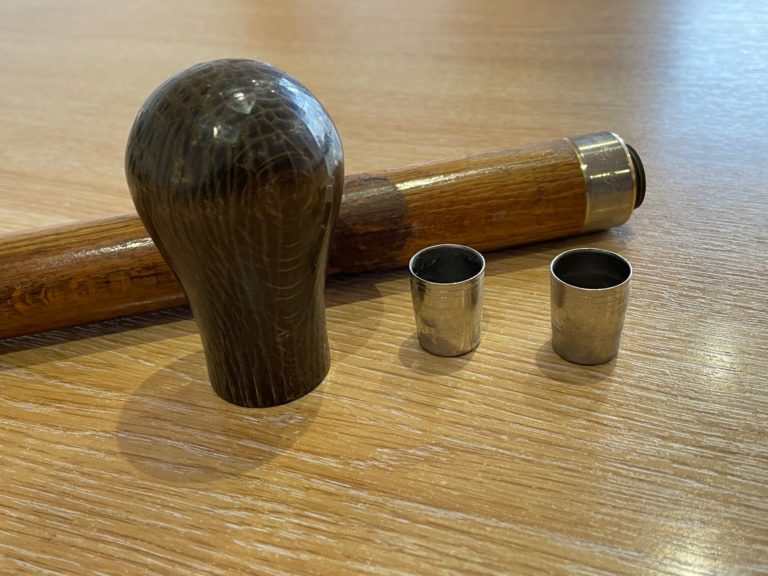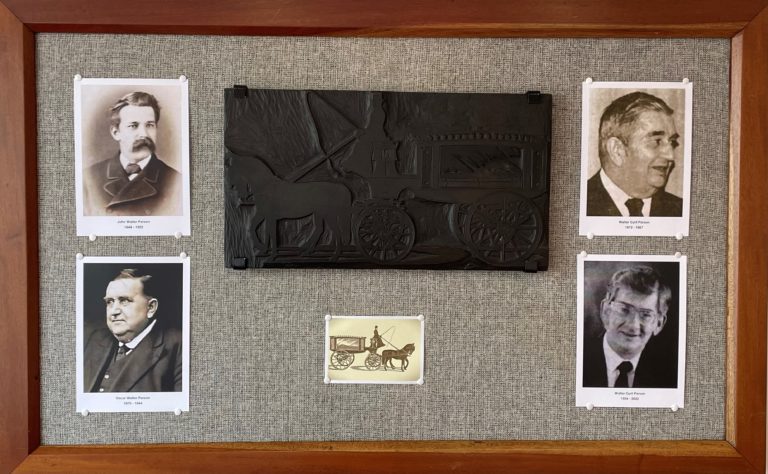Wally Parson family funeral directors – the history
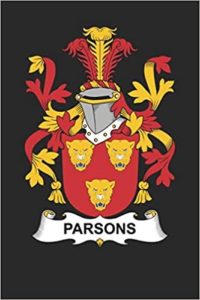
The Parson family tree – Richard Walter Parson. Funeral Director.
The spoken word and family stories, photographs, birthday cards and love-letters, the Records of Births, Deaths and Marriages, the National Census’, family heirlooms, hand-me-downs, parish records and genetics, all play their part in drawing our family trees.
Welcome to mine.
On my Mother’s (Hilary Frances Chard) side, it’s easy, all the men for nearly three-hundred years, served in the Royal Navy, which makes an easy link between me and my love of the sea and sailing. Family visits to my maternal Grandfather always meant a trip to Sidmouth Sailing club. Grandad had contracted TB and been invalided out of the Royal Navy, subsequently developing it in his hip, which in those days meant a bone graft from his shin, resulting in a fused hip. He was awarded a shilling a week pension from the Navy. He always sent it back to them, saying their need was greater than his.
Notably, he was also the last Chard to serve with the Royal Navy.
On my father’s side, the Parson family started an association with the funeral trade in the 1800 s which continues to this day.
We know from local records that James Parsons and Sarah Honking Kingdom were married in 1799 in Stoke Climsland Parish Church in Cornwall and had five children. Richard Walter (b 1810), Thomas Henry (b 1812), Robert (b 1815), Elizabeth (b 1818) and John Honking (b 1821), however there is no trace of the family in the 1841 Census, so tracking some of them for the next 40 years is difficult.
We know that James was a farm labourer in Cornwall and that his youngest son John Honking Parson, moved to Middlesex sometime in the 1830 s.
John Honking Parson married Elizabeth A. Ballard in London in 1842 and set up home in his wife’s home town in Middlesex, where he became a Baker. Together they had four children. John Walter (b. 1844), Thomas Henry (b. 1845), Elizabeth Ann (b. 1847) and Robert Honkin (b. 1849).
We pick up John Honkin Parson’s brother, Richard Walter again in the 1851 Census, he is a 42 year old Master Carpenter living with his wife Jane (nee Hawton), and their 15 year-old son Richard (who is noted as Apprentice carpenter) and their 10 year-old daughter Elizabeth (or Eliza), all together in 15 Guildford Terrace, Plymouth, Devon.
By the time of the 1861 Census, John Walter has moved to Plymouth from Middlesex, to live with his Uncle Richard. Sadly, both Richard’s wife Jane and their son Richard have died. Richard Walter is now married to Elizabeth Stenteford and together, they live with Richard’s daughter Eliza and nephew John, in Brunswick Place, Cattedown, Plymouth. Richard’s work as a Master Carpenter had strong historic connections to the Funeral Undertaking world of the time.
Throughout the 1800 s
For context, the Burial Guilds, which were common throughout the country earlier in the century, were still in use, but their popularity was waning and the better economic conditions meant that the more affluent could afford to have their own coffin, rather than the use of the Parish one. It would seem that any carpenter could put a notice in their window declaring themselves coffin suppliers, for the possible profit from the production of even one or two coffins a year.
According to Julian Litten (funeral historian), “the average Undertaker [at this time] was little more than a speculative cabinet-maker and joiner…” .
The first Parson family Undertaker 1881
It was ten years later, in the 1871 Census, when John Walter Parson, Richard’s nephew, is recorded as having taken-over his Uncle’s business, but no longer declares the business/himself as a Master Carpenter, but given the city’s Victorian industrialization, expansion and growth, Cabinet Maker and Builder.
By the time of the 1881 Census, it is official, John is 46 years old and married to Emily Jane Charlotte (nee Ley), with four children, Alice Elizabeth (b 1869) Emma Louise (b 1871), Ada Ellen (b 1873) and Walter Oscar (b 1875). John’s business, is now officially registered as Carpenter and Undertaker and whilst John’s Uncle Richard may well have made the odd coffin in his work as a Master Carpenter, John was the first to declare himself an Undertaker in my family history and it was in the 1881 Census.
Following service in the R.A.F. John’s son, Walter Oscar, the second generation, joined his father and took over the daily running of the business sometime in the 1920’s, before John’s death in 1923.
Walter Oscar, known as Oscar, married Ernestine Lethbridge in 1898 and the couple had a son, Gerald Oscar (b1899)
In the 1911 Census, mother and son, Ernestine and Gerald, had moved across Plymouth to Millbridge. Sadly their son Gerald passed away in 1918 at the age of 18 years. (It is possible that Gerald’s death could be connected with the worldwide flu epidemic of the time).
Although still married to Ernestine, Oscar went on to have three more children with Bessie Callard; Oscar Leonard (b 1908), Dorothy Alice (b 1910) and Walter Cyril (b 1912).
Notably, in the third generation, it was Walter, and not Oscar Leonard who took over the business from his father in 1933. There is talk that as neither son had the asking price of £100.00, Walter borrowed £35.00 and put it down as a deposit, thereby trumping his brother, paying the balance of £65.00 off at a later date. Oscar did continue to work for the family business however.
Walter married Beryl Bailey in 1931 and together they had four children; June (b 1931), Sylvia (b 1932), Walter (b 1934) and Elizabeth (b 1940)
During WW2, Walter served in the RAF in Canada, so his father and brother, Walter Oscar and Oscar Leonard stepped up to help and continued to look after the business until (Walter) Oscar’s death in 1944 at which point Oscar continued to run the business with Beryl helping between looking after her children, who were evacuated to Lifton to avoid the blitz of Plymouth. Oscar left sometime after Walter’s return from war service, due in part to dermatitis caused by the wood sap and polishes used in coffin construction at that time.
Beryl and Walter brought up their son Walter Cyril (Wally), the fourth generation, in the ways of the business and with Wally’s assistance, ran the business for nearly forty years before their deaths in 1987 just three months apart.
Under Wally’s stewardship, the business grew from the two offices to seven and continued to be successful, as it had under his father. Wally held various positions in the National Association of Funeral Directors, including being an Examiner on the National Examinations Board and Press Liaison Officer, once being voted ‘The Professional’s Professional’ by his peers in the National Association of Funeral Directors.
Wally married Hilary (nee Chard) in 1962 and together they had Kathryn Ann (b 1963), Ian Robert (b 1965), Richard Walter (b 1966) & Neil Christopher (b 1969).
Coincidence would have it that I, Richard Walter Parson the fifth generation, like my forefathers before me, was born at home, from where we ran the business. I was born in a Funeral Home.
I joined Dad, (Wally Parson) in the profession in 1987 and worked with him and his team, for the business, for over twenty-years as a proud team member and Company Director.
Present day
Time doesn’t stand still and some would say that when Wally was retired from Walter C. Parson ltd. in December 1999, that it was the end of the Parson family connection to the business bearing our name. The connection did finally end when I resigned in 2010, I was the fifth and last generation of the Parson family to be involved, which did put the final nail in the coffin, so as to speak.
The family story doesn’t end there though, and today, having been born in a funeral home and been trained firstly by Wally Parson, the Professional’s Professional, but latterly by a whole range of experts in a whole range of fields, over a forty year period, I am approaching a lifetime of service in the same profession as my forefathers.
Wally Parson passed away in 2022 and Richard remains the last Parson still in the profession, to quote Wally’s wreath inscription to his father on the day of his funeral, I would like to say to him and to my ancestors “I hope that one day you will be as proud of me, as I am of you.”

